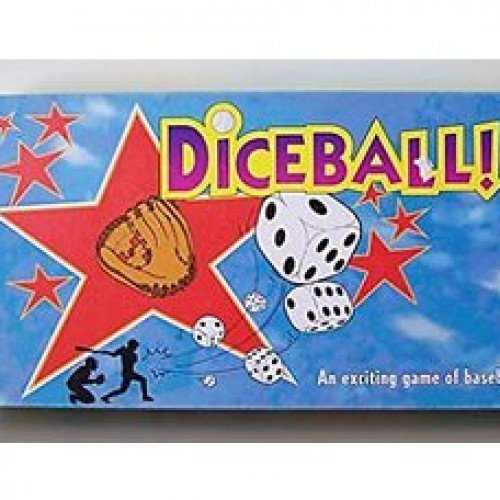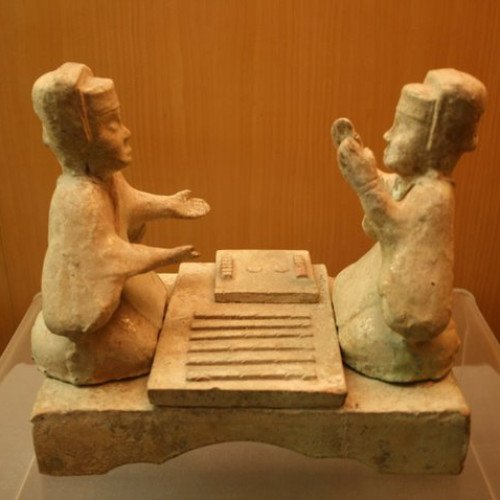DICEBALL VS LIUBO

DICEBALL
Diceball! is a board game in which two players roll dice to simulate a baseball game, one representing the visiting team and the other the home team. Both players use the dice to throw the baseball from the mound to the plate and field the ball on defense. Diceball! was designed to mirror the statistical reality of baseball. A regular game of Diceball! without extra innings lasts about 45 minutes. The game was designed in 1979 on a pizza box by a 16-year old Daniel Girard from Rawdon, Québec, while the Montreal Expos were chasing the pennant in the National League. Girard brought his game to his high school, where he organized tournaments with other students. Given the popularity of the game in his school, Girard also brought his game to university where it also became popular. The interest created by the game was noticed by entrepreneur Louis Desjardins, who launched the game with Girard. To start the game, the visiting team puts a pawn (as a batter and eventually runner) in the batter's box, to get the pitcher's throws. The die replaces the ball. The pitcher rolls the die until either the batter is struck out, the batter is walked, or the ball is hit. If the ball is hit, the offensive team rolls a die to determine the number of dice to be used to hit the ball. The number of dice indicated are rolled and added up. Numbers from 1 to 36 show the location where the ball is hit and the ball is placed on the game board. If the ball is hit on a circle, the ball was hit in the air and an out is recorded. If the ball is hit on a number in a cloud, it is a ground ball and that the batter will have to try to reach a base before the defense throws to that base. If the ball is hit to a star-shaped zone, the runner starts to run around the bases while the defence recovers the ball on the star. If the stars are from 27 to 36 it is a home run and all runners score. Every batter who runs around the bases and reaches home plate before three outs scores a run. As soon as three outs are recorded, stranded runners are removed from the bases. The teams trade places: the defense becomes the offense.
Statistics for this Xoptio

LIUBO
Liubo (Chinese: 六博 or 陸博; pinyin: liù bó; Wade–Giles: liu po; lit. 'six sticks') is an ancient Chinese board game played by two players. For the rules, it is believed that each player had six game pieces that were moved around the points of a square game board that had a distinctive, symmetrical pattern. Moves were determined by the throw of six sticks, which performed the same function as dice in other race games. The game was invented no later than the middle of the 1st millennium BCE, and was popular during the Han dynasty (202 BCE – 220 CE). However, after the Han Dynasty it rapidly declined in popularity, possibly due to the rise in popularity of the game of Go, and it became totally forgotten. Knowledge of the game has increased in recent years with archeological discoveries of Liubo game boards and game equipment in ancient tombs, as well as discoveries of Han dynasty picture stones and picture bricks depicting Liubo players. It is not known when the game of Liubo originated, although according to legend it was invented by Wu Cao (烏曹, called Wu Zhou 烏胄 in the early 2nd century CE Shuowen Jiezi dictionary), a minister to King Jie, the last king of the Xia dynasty, who according to traditional chronology reigned 1728–1675 BCE. While there is no archeological or reliable documentary evidence to support the view that Liubo dates back to the Shang dynasty (1600–1046 BCE), early Chinese records do indicate that Liubo was already a popular game by the Warring States period (476–221 BCE). For example, the Records of the Grand Historian records a speech made during the reign of King Xuan of Qi (reigned 319–301 BCE) that claims that the capital city of Linzi was so wealthy that its citizens were all able to indulge in activities such as playing musical instruments, cockfighting, dog racing, playing Liubo and playing kick ball.